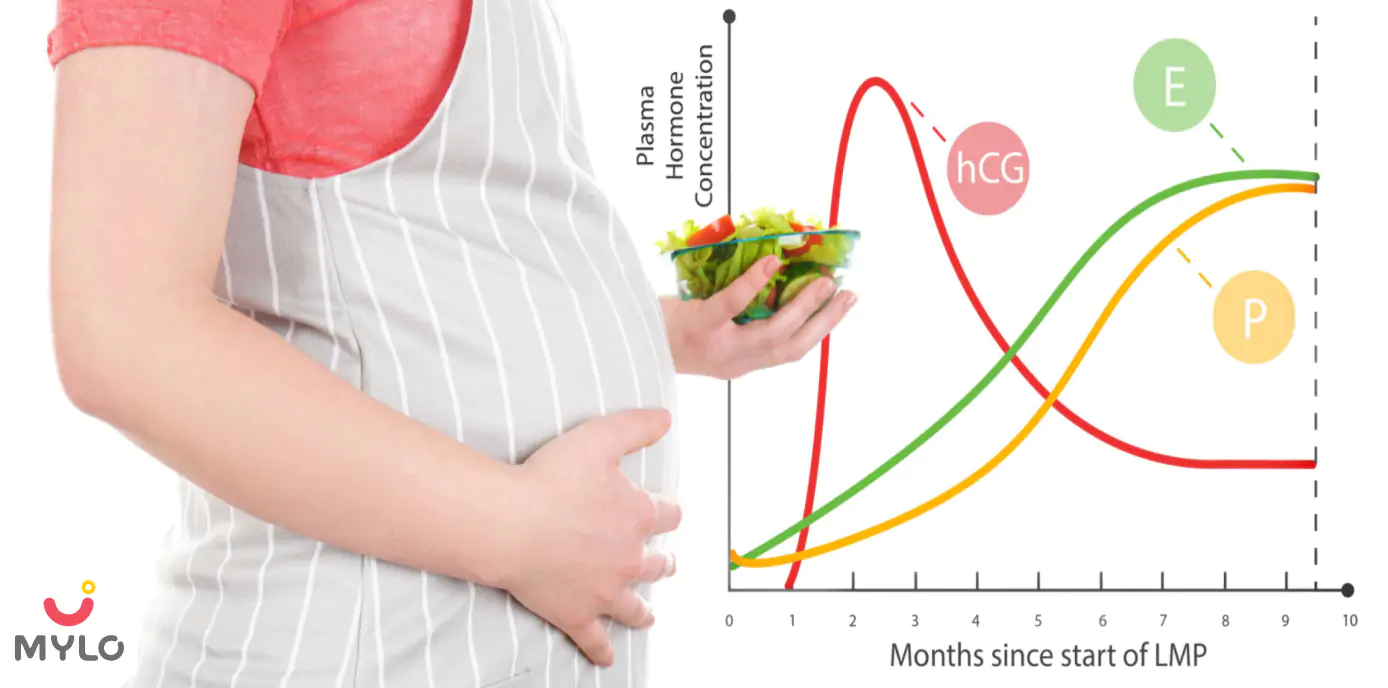Home

Farting and Smelly Gas During Pregnancy: Is It Normal?
In this Article

Farting and Smelly Gas During Pregnancy: Is It Normal?
Updated on 24 April 2024



Medically Reviewed by
Dr. Shruti Tanwar
C-section & gynae problems - MBBS| MS (OBS & Gynae)
View Profile

Pregnancy brings about many changes in a woman's body. It makes many parts of the body sensitive. From unexpected hair growth to constipation and belching, pregnancy causes many physical changes. Among these, gas is also a common occurrence among pregnant women. While it may seem embarrassing, it is nothing to be ashamed of. Smelly gas during pregnancy happens because of hormone surges.
The good news is that the smelly gas during pregnancy can be contolled. Although it cannot be completely done away with, there are some home remedies one can use to limit the smelly gas during pregnancy. So, let's understand in detail about what causes gas problem during pregnancy and how to manage it.
Is Gas an Early Pregnancy Sign?
One of the most common signs of pregnancy is smelly gas and farting during early pregnancy. This is nothing to be ashamed of. During the first week, a woman's body can become very gassy. Within the first two weeks of your first missed period, you may experience gassiness during early pregnancy.
Is Smelly Gas During Pregnancy Normal?
A pregnant woman’s body doesn’t have the same control as it did before pregnancy. This makes it harder to control muscle movements. The surge of hormones in the body causes her digestive system to swell up, which leads to pregnancy gas. Besides the discomfort caused by the buildup of gas, you may also experience abdominal pain, bloating and belching. And sorry to burst your bubble (pun intended), this may even last throughout the nine months of your pregnancy.
What Causes Farting During Pregnancy?
There can be several reasons behind farting and excessive gas during pregnancy, including:
1. Increased levels of progesterone
The hormone progesterone is responsible for relaxing muscles in the body, including those in your digestive tract. As the hormone levels increase, the digestion process slows down and leads to gas buildup and bloating.
2. Hormonal changes
Pregnancy hormones can affect the gastrointestinal system, causing changes in digestion and gas production. These hormonal fluctuations can contribute to increased pregnancy farts.
3. Pressure from the growing uterus
As your uterus expands to make room for the growing baby, it exerts pressure on the surrounding organs like the intestines. This increased pressure gives birth to gas and bloating.
4. Dietary factors
Some foods like beans, broccoli, cabbage, onions, lentils and carbonated drinks are known to cause gas. Consuming them during pregnancy can lead to excessive farting.
5. Reduced physical activity
Constant fatigue and numerous discomforts during pregnancy can cause you to limit your physical activity. Lesser physical movement can slow down your digestion and lead to more gas in the body.
How to Relieve Gas Problem During Pregnancy?
Farting during early pregnancy isn’t something to be ashamed of or be concerned about, nonetheless, there are ways to address it. Smelly gas during pregnancy is usually caused by consuming improper food and drinks. Keeping a food log can help you understand which foods trigger your gas and then you can avoid them accordingly.
Besides being mindful of what you’re eating, also pay attention to your speed. Eat slowly, chew your food well and avoid gulping in excess air to reduce the chances of gas getting trapped inside your body. Additionally, increase your intake of fluids and cut down on sweetened and carbonated drinks.
We know ladies this early pregnancy odour of gas can be bothersome, but here are some home remedies to reduce the odour and gas during pregnancy. Start by drinking fluids frequently, including water and fresh juices. Also, be mindful of taking more fibre and fibre supplements.
Will a Gas Problem Affect Pregnancy?
Discomfort is commonly felt amongst pregnant women as they tend to get bloated or trap gas due to the hormones released during pregnancy. However, these symptoms do not affect the baby or the pregnancy cycle as such. Please consult your doctor in case the gas lasts for a long duration, or if it is accompanied with severe abdominal pain.
You may also like: Which Foods Should You Avoid During Pregnancy That Cause Bloating?
Conclusion
Pregnancy gas may last for a few months, or the entire pregnancy cycle, especially since it occurs because of the release of hormones. Some women experience frequent farting during pregnancy, but this happens mainly because they do not focus on their food and water intake. To avoid bloating, belching and smelly gas during pregnancy, drink lots of water, eat foods with fibres or take fibre supplements, and ensure that your body gets plenty of physical exercise. While you can't avoid gas build up, you can relieve yourself from the gas, or limit the amount that gets trapped in your body.
References
1. Body changes and discomforts. (2021). The U.S. Department of Health and Human Services
2. Longo SA, Moore RC, Canzoneri BJ, Robichaux A. (2010). Gastrointestinal Conditions during Pregnancy. NCBI
3. Gas in the Digestive Tract; The National Institute of Diabetes and Digestive and Kidney Diseases; The National Institutes of Health





Medically Reviewed by
Dr. Shruti Tanwar
C-section & gynae problems - MBBS| MS (OBS & Gynae)
View Profile


Written by
Mittali Khurana
Mittali is a content writer by profession. She is a dynamic writer with 04+ years of experience in content writing for E-commerce, Parenting App & Websites, SEO.
Read MoreGet baby's diet chart, and growth tips

RECENTLY PUBLISHED ARTICLES
our most recent articles

Feeding from a Bottle
Why Steel Feeding Bottles Are the Ultimate Choice for Parents?

Gas & Bloating
Postpartum Gas: Causes And Remedies

Baby Weaning
Baby Diet Chart From Birth to 1 Year

A Guide on How to Increase hCG Levels in Early Pregnancy

Fetal Heartbeat
Late Heartbeat in Pregnancy: What Could Be the Possible Reasons?

Postnatal Care
What Is Postpartum Bleeding or Lochia?
- IUI Babies vs Normal Babies: Are They Any Different?
- Is it Safe to Eat Pani Puri During Pregnancy?
- High WBC in Pregnancy (Leukocytes): Symptoms, Causes & Treatment
- Top 10 food items and beverages that one must completely avoid during pregnancy.
- Things Not to Do After Cervical Cerclage for a Healthy Pregnancy
- When to Stop Bending During Pregnancy?
- Pain in Anus During Pregnancy: Your Guide to Causes and Cures
- White Spots on Nipple: Normal or Cause for Concern?
- Blessed with Baby Boy: 50+ Ways to Announce Your Baby's Birth
- Brown Discharge During Early Pregnancy: Understanding the Causes & Next Steps
- When Can I Start Bending After C-Section: Expert Insights on C-Section Recovery
- 18 Foods That Can Cause Miscarriage: A Guide to Avoiding Harmful Foods
- 9 Week Ultrasound: What to Expect & What are the Red Signals?
- Drumstick During Pregnancy: The Ultimate Guide to Benefits & Side Effects


AWARDS AND RECOGNITION

Mylo wins Forbes D2C Disruptor award

Mylo wins The Economic Times Promising Brands 2022
AS SEEN IN

- Mylo Care: Effective and science-backed personal care and wellness solutions for a joyful you.
- Mylo Baby: Science-backed, gentle and effective personal care & hygiene range for your little one.
- Mylo Community: Trusted and empathetic community of 10mn+ parents and experts.
Product Categories
baby carrier | baby soap | baby wipes | stretch marks cream | baby cream | baby shampoo | baby massage oil | baby hair oil | stretch marks oil | baby body wash | baby powder | baby lotion | diaper rash cream | newborn diapers | teether | baby kajal | baby diapers | cloth diapers | laundry detergent 6472 | lactomama lactation granules |







